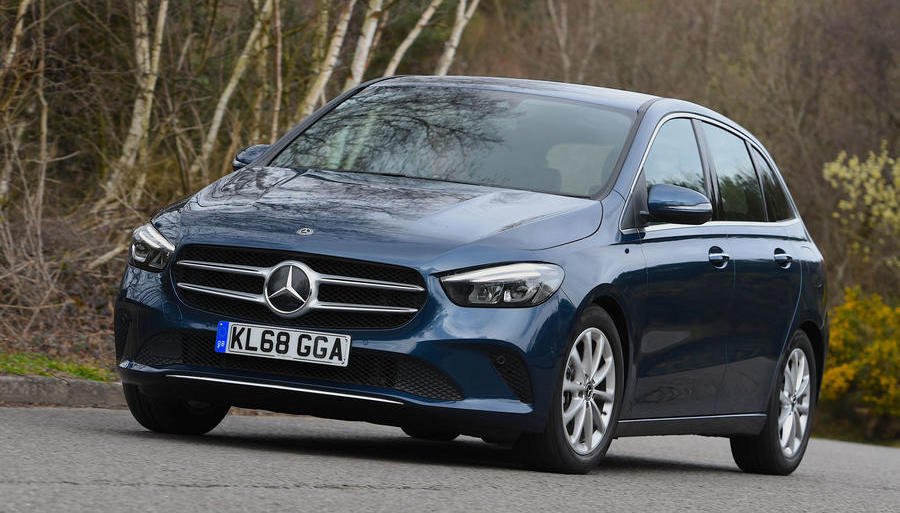Nearly new buying guide: Mercedes-Benz B Class

Are the days of the multipurpose vehicle coming to an end? A few makers think not, despite MPVs being pushed to the sidelines by the ever-growing cohort of crossovers.
Mercedes-Benz is one of the best examples. Its latest, third-generation B-Class is based on the high-selling A-Class hatch and features similar mechanicals, a handful of competent engines and a premium feel inside.
But the draws of the B-Class aren’t speed and power. Instead, this compact MPV is geared towards comfort and excellent accessibility.
We described its drivability as “effortless” in our 2019 road test and found its appeal was bolstered by a host of technology, including driver assistance features previously seen only on the S-Class.
A supple ride, light handling, excellent low-gear urban performance and competitive fuel economy combine to make the B-Class an all-round excellent package that’s easily a match for the new BMW 2 Series Active Tourer.
The more ground-hugging A-Class may be the more convincing steer, but the B-Class makes up for its unengaging drive with an airy and opulent cabin, which our road test proved was more serene than its rivals, recording at a calming 67dBA when driven at 70mph.
Meanwhile, leg room behind a driver of average height measures 740mm – just 10mm shy of that in the E-Class saloon. As for the boot, the B-Class offers 455 litres of space with the seats in their natural position, improving to 705 litres when they’re slid forward 14cm.
All of the B-Class’s engines since launch have been turbocharged and offer sufficient (rather than stimulating) levels of performance. A 1.3-litre four-cylinder engine powers the two petrol models, the 134bhp B180 and the 161bhp B200.
Although it’s a rarity within the Mercedes range in lacking an AMG performance variant, the B-Class can still be punchy, because the B220 ups output to 187bhp and therefore slashes the 0-62mph time to 7.1sec.
A 2.0-litre four-cylinder diesel engine is available in three power outputs. The B180d is the entry-level option, with a 1.5-litre engine producing 114bhp. It’s followed by the B200d (147bhp) and the range-topping B220d (187bhp), which can travel from 0-62mph in 7.2sec.
If you’re ready to electrify your driveway, look to the petrol-engined B250e plug-in hybrid, which was added in 2019. This offers 215bhp and a 0-62mph time of 6.8sec but more importantly 44 miles of electric-only driving on each charge, making it a frugal selection for those who rarely venture far from home (although it will be notably more expensive to buy).
As for equipment, the B-Class had just two trim levels at launch, both of them packed with technology and premium kit. Sport cars get 17in alloy wheels, cruise control, Mercedes’ excellent MBUX infotainment system on a 7.0in screen and LED lights. AMG Line cars add rear passive springs and dampers, exterior design tweaks and some otherwise optional equipment, such as the Executive Pack, which includes heated front seats, a 10.3in infotainment screen and front and rear parking sensors.
If you like the sound of keyless entry, a 10.3in digital instrument display and ambient lighting for maximum relaxation, seek out a car with the AMG Line Premium Pack.
Need to know
Prices for the B-Class originally started at £26,975. Today, the basic diesel B180d starts at about £19,000 with fewer than 30,000 miles on the clock. The B200d will set you back £20,000. Expect to spend £27,000 on the B220d. The basic petrol B180 starts at £19,000, while the plug-in hybrid B250e remains costly, at £33,000.
The B-Class scored highly in the latest What Car? Reliability Survey, finishing second in the MPV class, with a score of 98.7%. Nearly 6% of cars suffered a fault, all reports regarding non-engine-related electrical systems. The BMW 2 Series Active Tourer was the class winner, scoring 98.8%.
All diesels apart from the B180d use an eight-speed dual-clutch automatic gearbox, while the B180d and all the petrols have a seven-speed dual-clutcher.
Buyer beware
Get your fixes: Some MPVs offer three Isofix points on their rear seating arrangement, whereas the B-Class has only two.
Hard to port: Mercedes switched to USB-C ports for this version of the B-Class, so those with regular USB-A phone chargers will need an alternative cable or an adaptor.
Clogged filter: Keep an eye on the particulate filter on diesels, which can get clogged if the car is left sitting for lengthy periods or not driven at higher speeds with some regularity
Stop and restart: Some owners report the stop/start system not working, although this is often fixed by just restarting the car.
Ones we found
2019 Mercedes-Benz B180d Sport, 14,000 miles, £21,500
2019 Mercedes-Benz B200d Sport, 11,000 miles, £21,295
2019 Mercedes-Benz B200 AMG Line, 12,000 miles, £22,591
2021 Mercedes-Benz B250e AMG Line Premium, 5000 miles, £33,995
